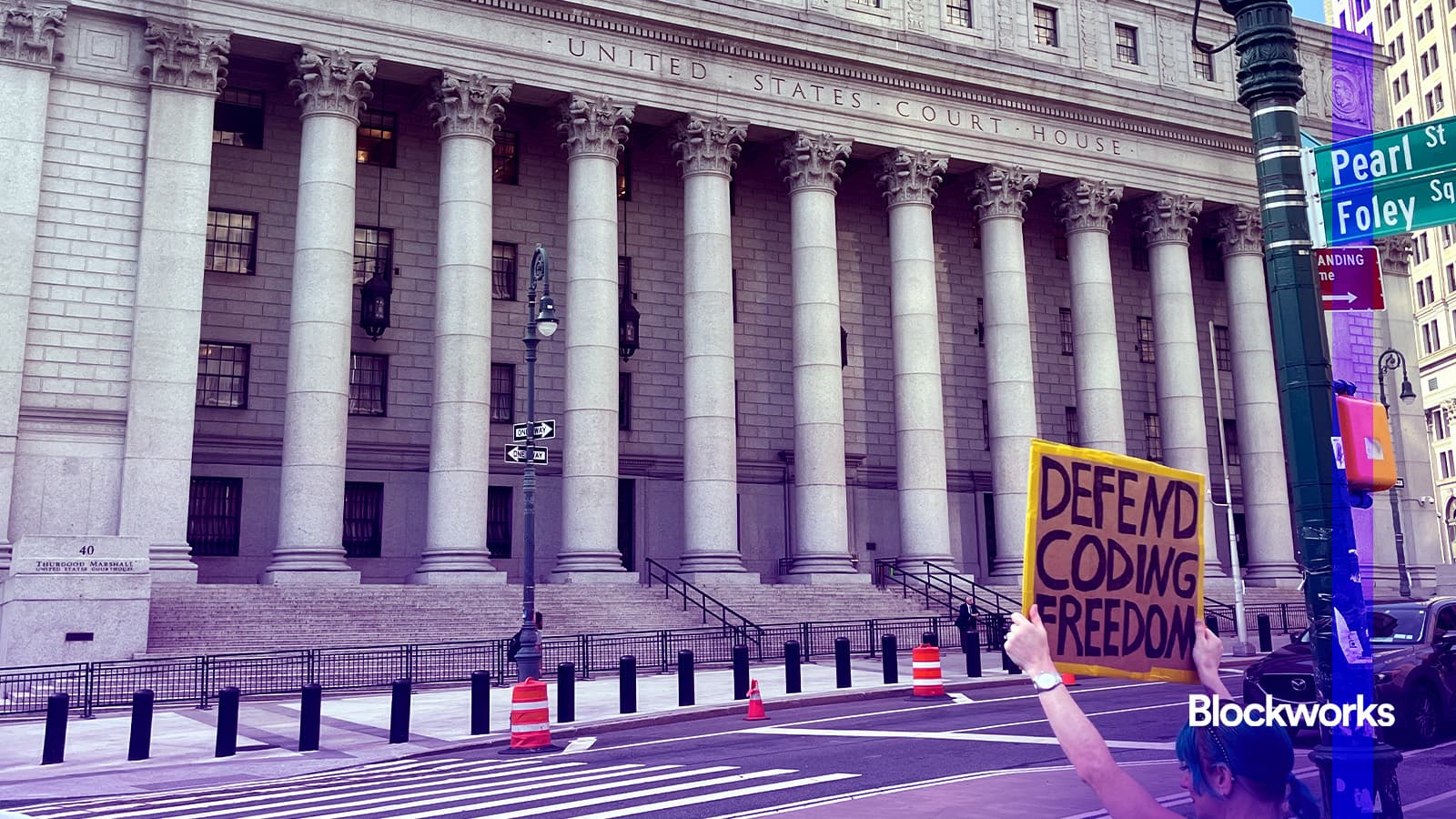Tornado Cash Trial Explodes: Witnesses Hammer Privacy & Decentralization as Roman Storm Case Heats Up

Privacy tech takes center stage in courtroom drama.
Witnesses for the defense didn’t just walk into court—they stormed in, armed with arguments that Tornado Cash’s decentralized design and privacy features put it beyond prosecutors’ reach. The Roman Storm trial just got interesting.
Decentralization on trial—literally.
Legal teams clashed over whether Tornado Cash’s code qualifies as a 'neutral tool' or a criminal accomplice. One expert witness called it 'the Swiss bank account of crypto'—minus the polished bankers and $25,000 wristwatches.
Privacy vs. prosecution: The crypto industry watches.
As regulators scramble to pin down DeFi, this case could set precedent. Will privacy protocols get labeled as money transmitters? Or will 'code is law' hold up in court? Either way, hedge funds are already placing bets—because nothing spices up a legal battle like Wall Street gambling on the outcome.
Guy Wuollet, partner at a16z crypto
Tuesday’s first witness, Wuollet had evaluated whether Andreessen Horowitz’s crypto/Web3 unit WOULD invest in Tornado Cash in 2021.
In an email to Storm at the time, Wuollet wrote he was “impressed by the strength of the privacy” of Tornado Cash and “excited about the next iteration of the protocol.”
The reason a16z didn’t invest? Wuollet said the firm didn’t know if Tornado Cash would be profitable.
“We will continue to be fans of Tornado Cash and to track its adoption onchain,” Wuollet added in the email.
When asked to acknowledge that crimes are committed on the blockchain, Wuollet paused before saying he thinks of it differently.
“If someone robbed a store, I wouldn’t say the store was used in the crime.”
An attendee sitting to my left started laughing. The prosecution ended the cross-examination there.
Omid Malekan, Columbia Business School professor
Not on the stand long, Malekan said he used Tornado Cash in 2021 to purchase an Ethereum Name Service (ENS) name.
He used the protocol because he “didn’t want to put a bullseye on my back.”
The prosecution’s Ben Arad shouted out an objection. Failla asked Klein to control his witness.
Dr. Stephanie Hurder, founding economist of Prysm Group
We found out the defense has so far paid Hurder $120,000 for her time analyzing this case and being an expert witness. She reviewed Tornado Cash DAO proposals, TORN token price data, transactions on Etherscan, etc.
She countered several points previously brought up by the government about Tornado Cash’s supposed lack of decentralization. Hurder noted the protocol’s DAO was “well-designed and active” (55% of TORN tokens initially went to the DAO treasury) and that Tornado Cash founders did not have (or always use) their voting power on proposals.
She added that the founders did not have a direct hand in selecting entities on Tornado Cash’s relayer registry.
The government’s exchanges with Hurder were heated, with prosecutors getting her to acknowledge that bad actors have apparently used Tornado Cash to hide criminal proceeds. As we know, the case against Storm is more nuanced than that.
And in a reference to the vesting schedule for founders’ TORN tokens, a prosecutor asked: “Tornado Cash became less decentralized over time, right?”
Despite the government wanting only yes or no answers, Hurder got out: “The distribution of tokens became less decentralized. Yes.”
Dr. Matthew Green, computer science professor at Johns Hopkins University
Green, who helped create the Zerocash protocol, was brought in to emphasize the value of privacy.
Though he was intrigued with crypto and blockchain technology essentially from its outset, Green called the lack of privacy (i.e. public transactions) “a huge bug.”
He talked about the value of VPNs and credit-card tokenization in protecting individuals and institutions. At one point, I caught a juror dozing.
The Tornado Cash pools were immutable, Green confirmed — preventing hackers or founders from making changes there.
During the cross-examination, Arad asked Green whether the Tornado Cash website, user interface and relay registry could be changed. “Yes” to all three.
Also of note was Klein wanting Green to address the feasibility of a hypothetical user registry that one of the government’s witnesses, AnChain.AI’s Philip Werlau, brought up last week.
Green’s initial hesitation to respond and a subsequent sidebar with the judge meant that the question went unanswered.
But as this case winds down and the jury is charged, we’ll have other, more critical answers soon.
- The Breakdown: Decoding crypto and the markets. Daily.
- Empire: Crypto news and analysis to start your day.
- Forward Guidance: The intersection of crypto, macro and policy.
- 0xResearch: Alpha directly in your inbox.
- Lightspeed: All things Solana.
- The Drop: Apps, games, memes and more.
- Supply Shock: Bitcoin, bitcoin, bitcoin.

